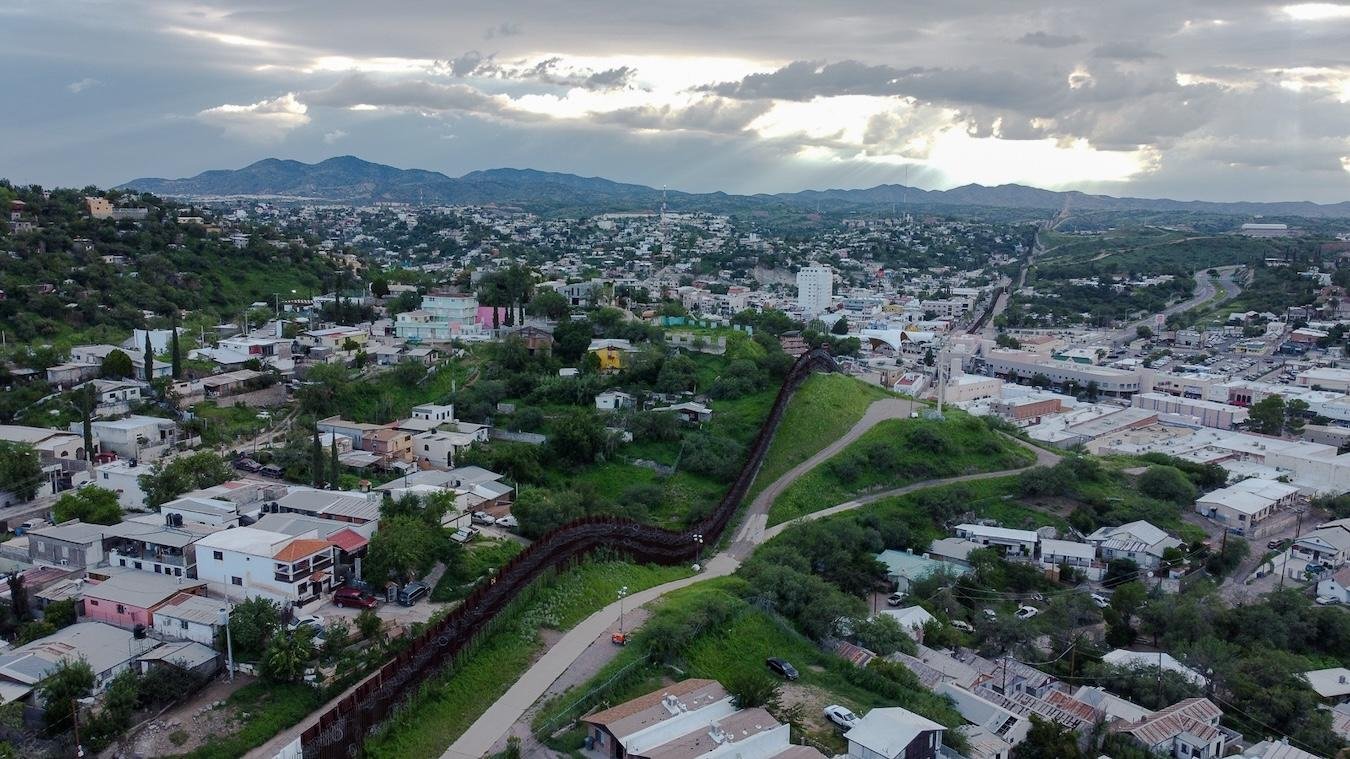border
Immigration Showdown: Trump’s & Harris’ Diverging Paths

The issue of immigration is shaping up to be a keystone in the upcoming 2024 presidential election, with candidates from both parties taking firmer stances than in previous campaigns.
Republican candidate Donald Trump has reinforced immigration as a central theme of his campaign, echoing his rhetoric from past elections. This time, he has intensified his critique by alleging false claims about migrants with legal status in areas like Springfield, Ohio. His speeches often vilify immigrants, with promises to carry out mass deportations for those residing in the U.S. without authorization.
Democratic nominee Kamala Harris is following a similar trajectory, aligning more closely with conservative viewpoints on immigration, focusing on limiting asylum and enhancing border security. A significant rise in migrant encounters marked the end of 2023, prompting the implementation of tougher measures that resulted in a noticeable decline in crossings this year.
Harris highlights her support for a bipartisan border security agreement, negotiated earlier this year, which aims to represent a significant overhaul of U.S. immigration law. However, this proposal failed to advance in the Senate after initial bipartisan support dwindled following Trump’s criticisms.
Both candidates will face pressing challenges if elected, including the fate of the Deferred Action for Childhood Arrivals (DACA) program, which safeguards a substantial number of undocumented children. A legal challenge from Texas remains a threat to the program’s validity and could escalate to the Supreme Court.
The next administration will also have to address complications surrounding work visas and the concerning backlog within U.S. immigration courts. Candidates have yet to elaborate on their strategies for managing these significant issues.
The Harris campaign referenced her statements from an Arizona rally, recognizing the existing flaws in the immigration system while advocating for stronger border security and improved avenues for legal citizenship.
Harris has adopted the bipartisan border security deal as a focal point of her campaign, promising to sign it into law and use it to counter Trump’s narrative. The proposed legislation includes raising standards for asylum applications, which would mandate applicants to provide more substantial evidence of their fears of persecution.
Funding provisions within the bill would allocate $20 billion for hiring additional asylum officers, legal aid for unaccompanied minors, and enhanced screening technologies at entry points. Furthermore, it includes proposals for 250,000 green-card employment and family-based visas over a five-year period.
In contrast, at his campaigns, Trump has continually vocalized his commitment to mass deportation, stating bluntly, “We’re going to have the largest deportation.” With an estimated 11 million undocumented individuals in the U.S., his proposed actions are multi-faceted, relying on historical laws and administrative restructuring within various federal agencies.
Trump’s proposed changes extend to birthright citizenship, claiming he would move to end this policy via executive order if he regained office, despite its constitutional grounding.
The former president has also expressed intentions to terminate the visas of foreign students participating in pro-Palestinian protests, reinforcing his tough stance on immigration as part of a broader national security agenda.
His campaign outlines plans to eliminate humanitarian parole programs initiated under the Biden administration, which were employed in response to recent geopolitical crises, facilitating entry for over a million individuals from various regions. Trump has criticized these measures as abuses of executive power, promising to halt them immediately upon his election.
In an unexpected twist, Trump recently voiced support for granting green cards to foreign students who earn their degrees in the U.S., expanding potential pathways for those seeking to remain in the country post-graduation.
Moreover, his campaign proposes thorough screenings of immigrants, aiming to filter out individuals holding ideologies sympathetic to groups like Hamas. Trump has expressed intention to reinstate his previous immigration policies, which include resuming wall construction along the southern border and reinstating stringent travel bans.


















